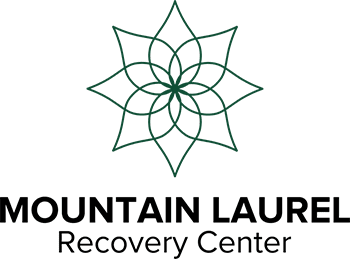If you are recovering from an addiction, you may find the road to be long and challenging. Undoing the mental patterns and automatic negative thoughts that fueled the addiction takes consistent work. One of the most powerful tools in rewiring your brain is the practice of positive self-talk. Cultivating an inner voice of compassion and encouragement is essential for long-term success.
Those struggling with addiction are often incredibly harsh critics of themselves. The addiction may have led to painful consequences like:
- Strained relationships
- Financial troubles
- Legal issues
- Health problems
These consequences can create a cycle of negative self-talk that can make you feel worthless or undeserving of being happy. Telling yourself negative things is not only painful but can undermine your recovery efforts.
Negative self-talk leads to feelings of hopelessness, diminished self-worth, shame, and resignation. It drains motivation and reinforces unhealthy coping mechanisms.
Positive Self-Talk Rewires Your Brain
The way you talk to yourself has a big impact on your brain. The more you repeat certain thought patterns, the stronger those mental pathways become in your brain. These ingrained thought patterns then shape how you feel emotionally, the mindsets you have, the behaviors you do, and even your bodily functions. Harsh, critical self-talk generates chronic stress, increasing cortisol levels and impairing focus, decision-making, and impulse control. Negative self-talk can put you at a higher risk for relapse.
Positive self-talk, on the other hand, has the opposite effect. It improves the way your brain functions and regulates emotions. It bathes the brain in mood-boosting neurotransmitters like dopamine, serotonin, oxytocin, and endorphins. Over time, affirmative self-talk develops new neural connections that breed confidence, optimism, perseverance, and resilience. These are the very traits necessary for a lasting recovery.
Using Positive Self-Talk
Positive self-talk requires conscious effort, especially in the beginning when negative narratives are still the default. It helps to write out a series of affirmations that address the specific negative beliefs you struggle with. Some examples of positive self-talk include:
- I am strong and have the power to change.
- I am capable of overcoming challenges.
- I’m headed in the right direction.
- I am learning and growing.
- I deserve to be happy.
You can write your positive affirmations in a journal, on a sticky note, or as a message on your phone or computer. Read your affirmations daily, letting the words sink in and carrying them with you throughout your day. When you notice negative self-talk creeping up, envision a big stop sign, end negative thoughts, and replace them with positive affirmations.
While saying positive thoughts to yourself may at first feel unnatural or silly, it has been shown that self-talk practice effectively builds self-esteem and optimism over time as new neural pathways are established.
Combining Positive Self-Talk with Other Recovery Tools
Positive self-talk is most effective when combined with other key addiction recovery tools:
- Counseling or therapy can help you explore why you are talking negatively to yourself. It can teach you the importance of positive self-talk and how to incorporate it into your recovery.
- Support groups, such as Alcoholics Anonymous (AA) or Narcotics Anonymous (NA), provide an opportunity to share not only your struggles but your accomplishments as well. Hearing experiences from others can help you learn to be more positive with your self-talk and voicing your accomplishments.
- Mindfulness meditation can help you release negative thoughts and be more aware of positive ones.
- Exercise can boost your mood and facilitate positive self-talk. When negativity creeps up on you, consider walking and enjoying your surroundings.
Don’t expect to undo years of negative self-talk overnight permanently. Like any new skill, positive self-talk takes practice and patience. There will be setbacks, discouraging days, and recurrences of negative inner monologues.
The key is to keep coming back to positive self-talk. Be gentle with yourself and show yourself compassion. With persistent effort, your new thought process will promote positivity, confidence, and hope and will soon become the default setting.
If you find yourself struggling with a substance use disorder, you are not alone. At Mountain Laurel Recovery Center in Westfield, Pennsylvania, we can provide the support you need for a lasting recovery. We use holistic approaches to address problems affecting the body, mind, and spirit. To learn more about what we have to offer, please contact us today.
